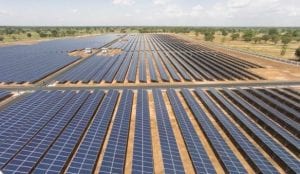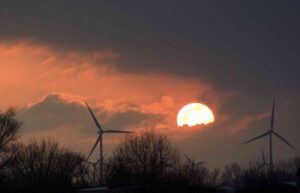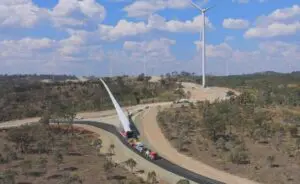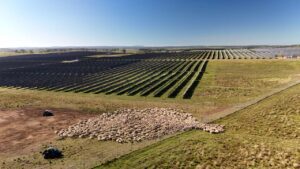It’s been a big week of energy announcements in Australia for the oil and gas major, Shell.
On Friday, Shell Energy Australia announced its part in a joint venture to develop, own and operate a 500MW and 1,000MWh big battery in the NSW Central West Orana REZ.
That same day, Shell also unveiled $31.6 million plans to harness an estimated 21.5MW of demand-side capacity by managing the loads of at least 40 commercial and industrial sites across Australia. The project has won backing from ARENA.
And on Monday, Shell Energy Operations bought up a 370MW hybrid wind, solar and battery storage project approved for Perth in Western Australia, in a joint venture with Foresight.
Outside of this week, Shell announced in March that it had agreed to buy a 49 per cent share of Australian wind farm developer WestWind Energy Development, which has a 3GW project pipeline across Victoria, New South Wales and Queensland.
The stake in WestWind followed up on its investment in solar farm developer Esco Pacific, and its direct investment in the 100MW Gangarri solar project in Queensland.
Meanwhile, Shell has been quietly bulking up its retail activities, having bought the commercial and industrial focused ERM a few years ago, and more recently the retail-focused Powershop, which sparked a backlash from some customers.
Shell also owns the German battery maker sonnen, which has widespread operations in Australia, and has struck a deal with steel maker Bluescope to install an electrolyser to test the green hydrogen market and technologies.
“Tens of billions of dollar” of projects
And it’s not the only oil major planning to tap in to Australia’s energy transition. BP reportedly has $10 billion-plus worth of renewable energy plans for Australia, if governments continue to play nice with incentives.
In a speech delivered on Friday, BP’s Australian president Frederic Baudry has reportedly said that company’s Australian portfolio of low carbon investment projects has risen to the top three within the organisation globally with “tens of billions of dollars” of investment available if projects can be made economic.
In particular, the oil major is interested in the prospects of renewable hydrogen in Australia, having in June acquired a 40.5 per cent stake in the $30 billion Australian Renewable Energy Hub in the Pilbara, one of the biggest renewable and green hydrogen projects in the world.
“Our analysis also shows hydrogen could have an 8-15 per cent share in global primary energy consumption by 2050, the same role natural gas plays today, the same in Australia provided we build the infrastructure to bring it to customers,” Baudry speech reportedly says.
“It’s hard to think now, that there was scepticism about the viability of a local LNG industry 30 years ago. But industry and government collaboration made it happen to the benefit of the Australian economy and trade balance.
“Therefore, and this is an essential first ask, in order to ensure Australia captures hydrogen’s economic, environmental and energy security benefits, we need a supportive investment framework that will prevent capital leakage overseas, particularly to the US.”










